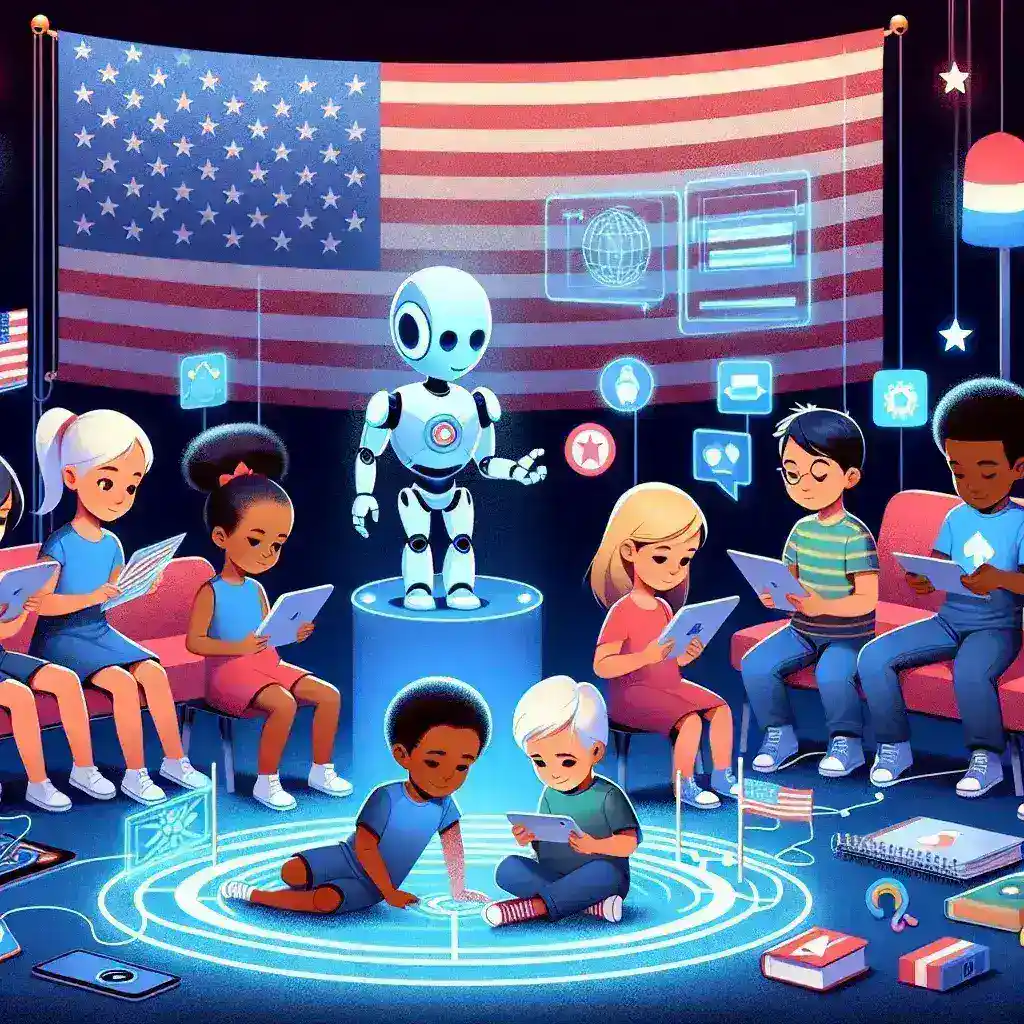Introduction
As technology continues to evolve, the way children interact with media also transforms. Disney+, a leading streaming platform known for its rich library of family-friendly content, is taking a pioneering step forward by piloting AI-powered learning games specifically designed for U.S. children. This initiative aims to blend entertainment with education, providing young viewers with engaging and interactive experiences that foster learning and development.
The Need for Educational Content
In an age where digital content dominates, the need for educational yet entertaining programming has never been more critical. According to a report by the American Academy of Pediatrics, children aged six and older spend an average of over 7 hours a day on screens. This substantial screen time presents not only opportunities for learning but also challenges in ensuring that the content consumed is beneficial.
Understanding the Role of AI in Learning
Artificial Intelligence (AI) has rapidly become a cornerstone in various fields, including education. By leveraging AI, developers can create personalized learning experiences that adapt to the child’s unique learning pace and style. This technology allows for:
- Individualized Learning: AI can analyze a child’s responses and tailor content accordingly, providing challenges that suit their skill level.
- Engaging Interactivity: Games designed with AI can offer instant feedback, making the learning process more interactive and enjoyable.
- Data-Driven Insights: AI can track progress, helping parents and educators understand a child’s learning journey.
Disney+’s Approach to AI-Powered Learning Games
Disney+ aims to integrate AI into its children’s content in a way that is seamless and engaging. The platform is exploring various themes and formats for its educational games, ensuring they resonate with the interests and preferences of children today. Key elements of Disney+’s approach include:
1. Incorporating Popular Characters
Children connect deeply with their favorite characters. By utilizing beloved Disney, Pixar, Marvel, and Star Wars characters, the platform can create relatable and motivating educational scenarios. For instance, a math game might involve counting treasure with Captain Hook or solving puzzles alongside Elsa.
2. Fostering Collaborative Learning
Moreover, the games are designed not only for solo play but also for collaborative experiences where children can play with friends or family. This social aspect enhances the learning experience and makes it more enjoyable.
3. Creating a Safe Learning Environment
Safety is paramount in children’s content. Disney+ is committed to providing a safe digital environment where children can explore, learn, and play without exposure to inappropriate content. All AI-powered games will undergo rigorous testing to ensure they are suitable for young audiences.
Potential Impact on Children’s Learning
The introduction of AI-powered learning games could significantly impact children’s education and development. Some anticipated benefits include:
1. Improved Engagement
Traditional educational methods may not resonate well with the digital generation. By incorporating gameplay, children are more likely to engage with the material, leading to higher retention rates.
2. Enhanced Problem-Solving Skills
Through interactive challenges, children can develop critical thinking and problem-solving abilities. Games that require strategic thinking can help cultivate these skills in a fun and immersive way.
3. Encouragement of Creativity
Many AI-powered games will include elements that encourage creativity, allowing children to express themselves through art, storytelling, and design. This approach not only makes learning enjoyable but also fosters innovation.
Challenges and Considerations
While the prospect of AI-powered learning games is exciting, there are several challenges and considerations that Disney+ must navigate:
Adapting to Varied Learning Styles
Every child learns differently. Creating games that cater to various learning styles—visual, auditory, and kinesthetic—will be essential to ensure inclusivity.
Screen Time Management
Although the games are educational, it’s crucial to balance screen time with offline activities. Disney+ will need to promote responsible usage and encourage parents to engage with their children during gameplay.
Data Privacy Concerns
With AI collecting data to enhance learning experiences, concerns about children’s privacy must be addressed. Disney+ must comply with regulations such as the Children’s Online Privacy Protection Act (COPPA) to ensure data security.
The Future of AI in Children’s Content
As Disney+ embarks on this journey, it sets a precedent for how children’s content can evolve to meet the demands of the digital age. The potential for AI in educational programming is vast, and if successful, it may inspire other platforms to explore similar avenues. The future could see:
1. More Diverse Educational Offerings
AI technology could allow for a wider range of subjects and topics to be covered, from coding and mathematics to language learning and environmental education.
2. Global Accessibility
With advancements in AI translation and localization, educational games could become accessible to children worldwide, breaking down language barriers and promoting global learning.
3. Continuous Improvement
As AI systems learn from user interactions, the educational content can continuously improve, ensuring relevance and engagement for future generations.
Conclusion
Disney+’s initiative to pilot AI-powered learning games marks a significant step in the intersection of entertainment and education. By leveraging technology to enhance children’s learning experiences, Disney+ is not only catering to the demands of modern audiences but also contributing to the educational landscape. As this pilot program unfolds, it will be fascinating to see how these innovations impact young learners across the United States, potentially shaping the future of children’s content for years to come.
